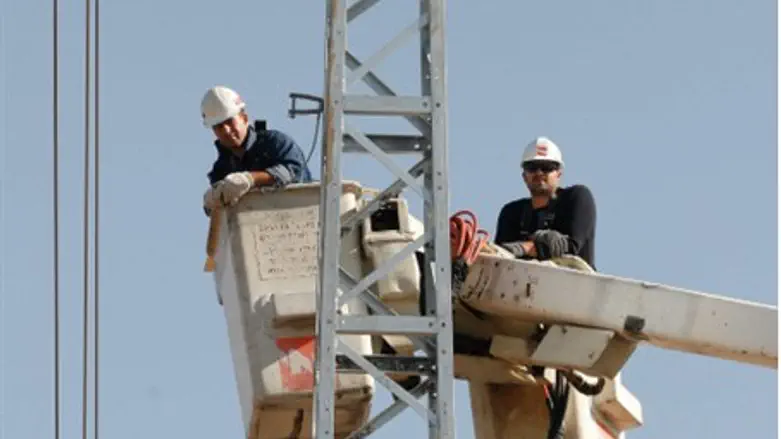
Although many modern halachic arbiters permit the production of electricity in Israel on Shabbat, even if the workers are Jewish – meaning that they themselves are violating the Sabbath – the Israel Electric Company has long declared that it was seeking ways to enable workers to avoid working on Saturday. On Sunday, the IEC announced that a plan that would enable the company to become “Sabbath observant” by the end of next year was well underway.
The permissibility of using electricity generated by Jews on the Sabbath (for security reasons, nearly all the IEC's workers are Jewish) stems from the fact that electricity is needed for defense and medical treatment purposes, making the manufacturing of power a matter of avoiding “a danger to life” (pikuach nefesh). However, some hareidi rabbis do not rely on this permissibility (heter), preferring to use their own generators for completely “kosher” power. And nearly all Orthodox rabbis say that while a concession is made to allow the generation of electricity by Jews for life-saving and preserving purposes, it would certainly be far better if the IEC could find a way to generate power without requiring Sabbath violation.
But an automation program being conducted by the IEC could solve the problem. The automation process has actually been underway for several years, but new technology, such as the use of smart meters, has enabled the company to speed up the process, to the extent that Sabbath electricity generation could be fully automated as soon as a year from now.
The automation process is being supervised by several rabbinical organizations, such as the Tzomet group, which examines the halachic implications of technological issues.
An IEC spokesperson said that theoretically the automation process could be applied to the rest of the week as well. However, the spokesperson said, that was not on the agenda, so long as the IEC was still a government-controlled company, with its primary interest not necessarily the profit motive, but improving the lives of Israelis wherever possible.